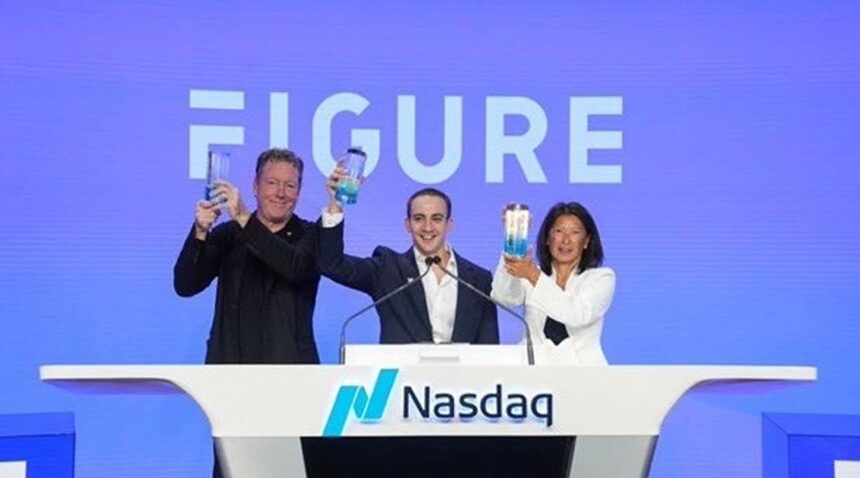Last week witnessed a significant boost in the U.S. initial public offering (IPO) market, driven by the impressive debuts of two cryptocurrency-focused companies: Figure Technology and Gemini Space Station. These market entries highlight a resurgence in digital asset firms amid a landscape previously marked by sluggish activity.
Figure Technology, trading under NASDAQ as FIGR, made waves by closing its inaugural trading day with shares soaring by 44% from its offering price of $25, bringing its total market capitalization to approximately $7.6 billion. The New York-based company began trading at an impressive $36 per share, following an upsized offering that raised $787.5 million—exceeding all expectations. At the peak of its trading, the stock ascended to $38 before ultimately settling at $31.11 by the end of the day, and it remained resilient at $32.50 in subsequent trading sessions. In a celebratory statement on social media, Figure emphasized their journey to revolutionize capital markets through blockchain, illustrating their vision of cultivating a more efficient, transparent financial ecosystem.
Hot on the heels of Figure’s success, Gemini Space Station, listed on the NYSE as GEMI, recorded a remarkable 32% increase during its debut, assigning the cryptocurrency exchange a market valuation of $4.4 billion. Founded by the wealthier Winklevoss twins, Cameron and Tyler, Gemini shares opened sharply at $37.01, significantly surpassing their $28 IPO price. The company secured $425 million from this endeavor. The Winklevoss brothers reflected on their journey to this pivotal IPO day, acknowledging the blend of challenges and opportunities that have shaped their business.
The robust performance of these debuts has marked the busiest week for U.S. IPOs since July 2021. Companies are now eager to capitalize on soaring equity markets while concerns about trade policy volatility have lessened. Analysts suggest that improving regulatory conditions under the current administration have fostered a suitable environment for cryptocurrency businesses. Jacob Zuller, an analyst at Third Bridge, remarked on Gemini’s timing, indicating it was fortuitously positioned to leverage these favorable changes.
Mike Cagney, co-founder of Figure, underscored their unique position by distinguishing their enterprise from other cryptocurrency companies that primarily invest heavily in digital assets. Cagney noted that Figure uses its Provenance blockchain technology to streamline home equity loan origination and processing, which has enabled the company to facilitate $6 billion in home equity lending over the past year—a 29% increase from the prior period. Additionally, he highlighted that many large banks currently utilize Figure’s technology, evidencing its growing acceptance in traditional financial institutions.
Meanwhile, Gemini’s noteworthy debut signifies a remarkable revival for the Winklevoss twins, who faced regulatory scrutiny from agencies such as the SEC and CFTC in prior years. Despite reporting a net loss of $282.5 million in the first half of 2025—an increase from the $41.4 million loss during the same timeframe in the previous year—analysts anticipate rising trading volumes driven by increasing institutional adoption.
Both companies’ IPOs were substantially oversubscribed, reflecting heightened investor interest, especially Gemini’s, which attracted 20 times more demand than shares available. Nasdaq’s $50 million investment in Gemini earlier in the week likely enhanced investor confidence.
These debuts further enhanced momentum in the cryptocurrency sector, showcasing an increasing appetite for financial technology firms. Gemini now stands alongside other publicly traded cryptocurrency exchanges like Coinbase and Bullish while Robinhood integrates digital asset trading within its suite of financial services. Overall, these successful IPOs illustrate a renewed vigor in the cryptocurrency market and its integration into mainstream financial practices.






